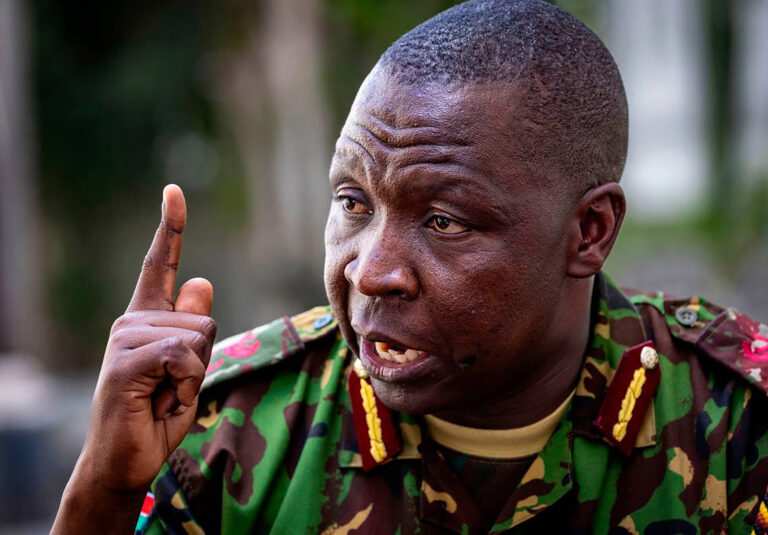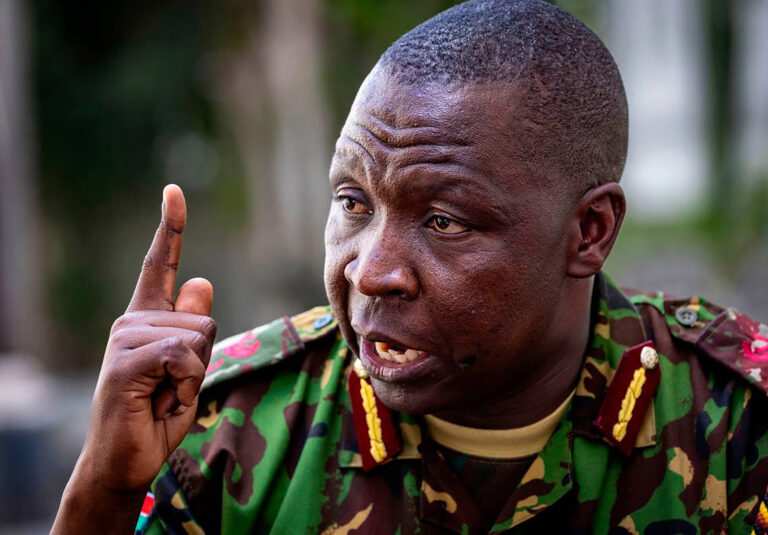
The Kenya-led police force mission in Haiti remains well below its envisioned 2,500 personnel, seriously underfunded and has yet to make a major impact against armed gangs.
The United States, which has provided more than $300 million for the mission, remains its largest financial backer, along with Canada, which recently provided $59 million Canadian dollars to a United Nations controlled trust fund.
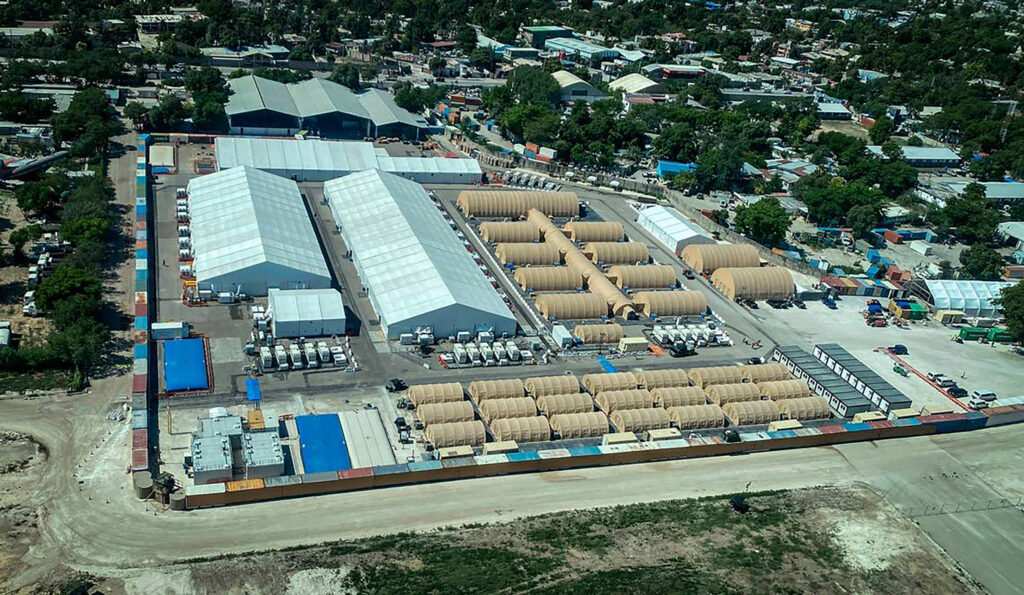
Approved for only a year in October 2023, the Multinational Security Support mission’s re-authorization is scheduled to be discussed by the U.N. Security Council on Sept. 30. Supporters face questions about the force’s long-term sustainability and its effectiveness in helping Haiti’s beleaguered police take down gangs, who earlier this year united to lead a broad assault on key government infrastructure.
The Biden administration, aware of the challenges, now wants to transform the force into a more formal U.N. peacekeeping operation or some hybrid that would allow for funding and staffing to be stabilized. In the meantime, the Kenyan cops and the Haiti National Police have been training together.
In an exclusive interview with the Miami Herald, Godfrey Otunge, the commander on the ground of the Kenyan force, recently reflected on the mission’s challenges and needs, and his focus. He insists that the mission, which currently has 400 Kenyan police officers in Haiti, is well poised to restore “the lost glory of security” to Haiti. Godfrey says once additional police and military personnel from Jamaica and five other nations join them in Haiti “and we have the equipment, we have the funding,” gang leaders’ days will be numbered.
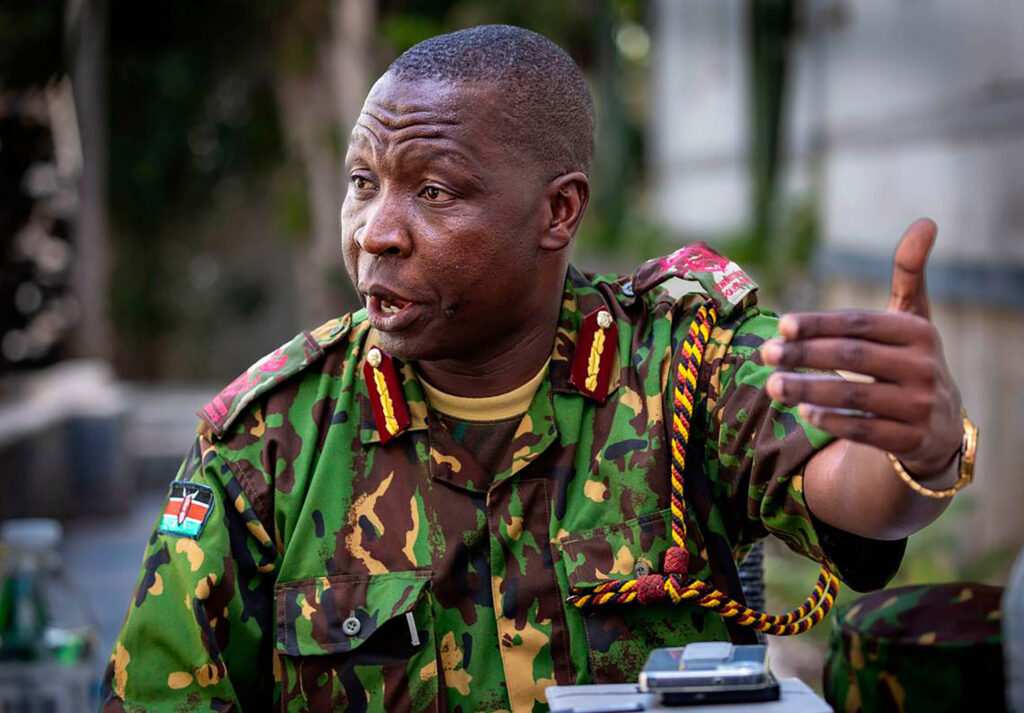
The following is a question-and-answer session with Otunge during an hour-long sit down interview in Port-au-Prince. It has been edited for brevity and clarity:
Q: Many people have questioned why Kenya is interested in helping Haiti.
A: We value service to humanity, and that’s very key. Number two, the historical background between Kenya and Haiti dates back so many years because Haiti, historically, is the first African country to get independence. And after getting independence, that is what made other countries in Africa to become bold enough and to say, ‘Oh, we can also become independent.’ And Haiti didn’t stop after getting its own independence. They sent some of their people back to African countries and they supported the Africans and that’s why as a country, we saw that at least we have a debt, and we have to come to Haiti, being that Haiti is part of us, to support them, to ensure that at least the lost glory of security is restored.
What makes this different from United Nations peacekeeping missions?
The only issues that ties this mission so much to the U.N. is about the trust fund, the human-rights due diligence and compliance and accountability in terms of international human-rights law. The mandate says we have to support the Haiti National Police. We cannot work alone. We complement and support them fully.
It was designed in a way that after this mission, the international community, other countries, expect the Haitian police to be professional as the way we are working with them, because part of our mandate is to build up the Haitian police in terms of giving them some subject-matter expertise that we have in various areas.
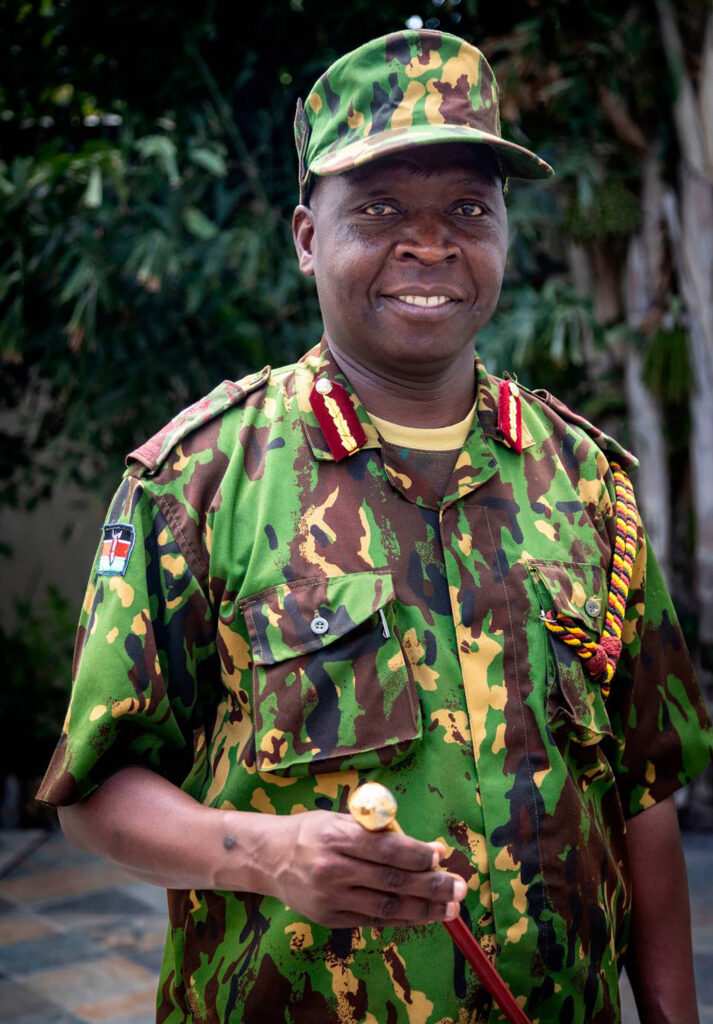
The 400 Kenyan officers have faced some challenges. Is that surprising?
The way the [mission] is structured, the expectation was that there were going to be some problems, some challenges… in a new thing, in a new environment.
Just two contingents of the mission have deployed so far, raising questions about the slow process.
The mission had four phased deployment timelines. The first phase that we are currently in is the deployment phase. The deployment phase is supposed to run for a certain duration, and the focus is supposed to be on mobilization of resources, personnel coming in, induction, training.
But we have seen some engagement with gangs.
Security is perception. The Haitians had hope and had confidence in us, and that’s why we said we could not sit down and wait for the next phase and we immediately engaged with the Haiti National Police.
What are some of the results of this engagement?
I can report confidently that when we came here, the [State University of Haiti] hospital was taken over by the gangs. It was a no-go zone. Together with the HNP, we recaptured the hospital, and the hospital is currently under our patrols together with the Haiti National Police. Number two, the seaport was a no-go zone. Nobody dared to go to the seaport because it was totally barricaded. We worked together with the Haiti National Police and people are now moving and there’s movement of vehicles.
You previously said that Kenyan police had nowhere to set up a base after joining Haitian police on an operation to stop a gang takeover of Ganthier, just east of Port-au-Prince, and the Kenyan forces left. What is the latest on setting up forward operating bases?
We are in the process of developing forward operating bases in the areas that we’ve mapped out to be key to us…. We’ve identified a place next to the seaport. I can tell you the international community has supported us fully, and they are establishing it to become the first forward operating base for us.
Haitians complain that they do not see Kenyan police officers on patrol.
Every day and night, I send patrols together with the Haiti National Police to ensure security within downtown, within the perimeter, the airport and other areas within Port-au-Prince.
You’ve insisted that the mission is in the deployment phase. What should gang leader like Lanmo Sanjou, who continues to threaten a takeover of Fond Parisien, near the border, expect after the deployment phase?
I can tell you that Lanmo Sanjou, his days are numbered. Take it to the bank, because we came here for a reason. We came here with a purpose. We came here to do something, and we must do it.
Before you left Kenya, President William Ruto prayed for the officers. Did he give you any advice?
He told us, ‘Go there and don’t let me down.’ So at any given point the way we are as a mission, with Kenya taking the lead, we cannot let our president down at whatever cost. And that’s something the Haitian people must be sure of: We will not leave Haiti until we achieve our mission.
The mission recently received an additional 24 armored vehicles with gunner turrets and gun mounts.
We are getting equipment because when the Hait National Police gets equipment, I have equipment…. We are still expecting more, and that’s why I’m telling you, the days of the gangs are numbered.
Recently some foreign diplomats have approached you personally to ask how their governments can assist.
Countries have now come up, and they’ve now said they want to support the mission to its fullest. Others have even come directly and asked me, “What kind of equipment do you want locally that can be found here so that we can fund you?”
The mission’s lack of helicopters has been criticized. Were they ever considered?
From our initial logistical plan, helicopters were considered and they are still…. Everybody, even my country, is still negotiating on getting air support. I’m very clear about what we wanted for air support in terms of operations. For example, when the gangs have barricaded the roads, how do you get officers in to save lives, to protect the communities, and now, to tell the gangs, “If you barricade the roads, we still have an option.” Number two is about surveillance. We want aircraft fitted with cameras to be able to move around and see whatever the gangs are planning and what they are doing.
How else would air support be useful?
Rescue. If you look at the roads here, so many are narrow and there are so many high buildings, so the gangs have devised a way that they can barricade and… sandwich the security vehicles in between…. You can insert, very quickly, specialized teams and rescue assets, rescue the public and any officers.
There is a perception that the MSS is purely a Kenyan force.
The MSS is a multinational force, it’s not a Kenyan force. The perception, even in social media, people are referring to MSS as Kenyan. Kenya is just taking the lead. But we are expecting Belize, Jamaica, The Bahamas.
The word ‘war’ is often used to describe what’s happening in Haiti. You disagree?
It is not war. This is a gang issue. We are coming from Kenya, where we are neighboring Somalia. We know what terrorism is all about. We know the capabilities of terrorists. These people here are gangs, they want to fight and go home alive.
How do you view the Haiti National Police in this fight?
It’s not that the HNP cannot deal with the gangs here. The HNP lacked some of the equipment. That’s the reality. They are brave people. They are courageous people.
Some critics have suggested the Kenyan forces appear to be afraid to be in Haiti.
The team that has been sent here are elites, elites trained in anti-gang actions… .Kenya trained their best skilled and competent officers to bring to Haiti. We were not gambling, and we cannot gamble, coming 15,000 kilometers and bring people who are amateurs to Haiti. Kenya is the country that developed the pre-deployment training curriculum that was approved and has been approved by the U.N., and this curriculum was customized as per the mandate that was provided for under the United Nations Security Council.
Will your officers be charged only with protecting key government installations?
We are expecting some countries will bring the military, like the Jamaicans, they will have elements of military and police. In policing, it’s very clear you cannot use the military in some policing aspects. So what are we going to use the military for? They are going to provide static security, like, for example, if we take the port, we are going to deploy the military at that particular port so they ensure that the gangs don’t come again and occupy the port.
What is your focus?
Our focus is about ensuring we clear all the roads, the major roads, so that there’s access for all the humanitarian organizations that ought to support the population. Number two, we ensure all critical infrastructure, the airport, the seaport, the hospital and the schools are well protected. Number three, all intersections, we must ensure that all intersections are accessible to everybody without limitation.
___
© 2024 Miami Herald
Distributed by Tribune Content Agency, LLC.
American Military News Rephrased By: InfoArmed
